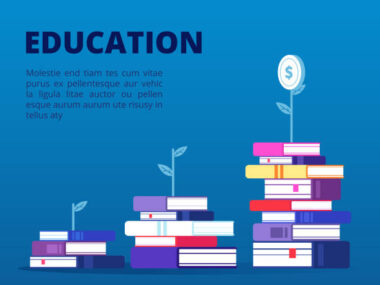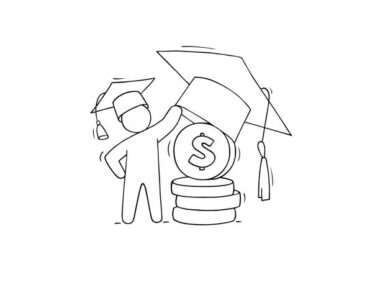Education lies at the foundation of society, offering a path toward growth, opportunity, and personal development. But when legal issues cloud the educational journey, an education attorney becomes a pivotal figure – an advocate determined to resolve conflicts and protect rights within the realm of education.
This post delves into the intricacies of what an education attorney does and when their expertise becomes indispensable.
What Is An Education Attorney?
An education attorney, also known as an education lawyer, specializes in legal matters pertaining to the education system. They provide guidance and representation to students, parents, educators, and educational institutions on a wide range of issues, including but not limited to student rights, special education, discipline, discrimination, school governance, and education policy.
These legal professionals are well-versed in the laws and regulations that govern educational environments, ensuring that individuals and institutions comply with federal and state education laws.
Following on from understanding what an education attorney is, it’s important to know when and why you might need one. If you’re facing a dispute over educational services or accommodations, particularly in special education, or if you’re battling issues of unfair treatment or discrimination in the school system, an education attorney can be your advocate and guide through complex legal challenges.
They provide crucial assistance in understanding the intricacies of the Individuals with Disabilities Education Act (IDEA), Title IX, the Americans with Disabilities Act (ADA), and other significant education-related legislation.
Furthermore, educational institutions often require the expertise of an attorney to navigate the complexities of education law to ensure that they are operating within legal parameters and are adopting best practices for governance and administration.
Whether you’re a parent advocating for your child’s educational needs, a student facing disciplinary action, or an educational institution dealing with regulatory compliance, an education attorney is a valuable ally in ensuring that rights are upheld and justice is sought within the education system.
What Is An Education Attorney And What Do They Specialize In?
When educational paths take unexpected turns, an education attorney is the legal compass guiding students, parents, and educators through the maze of complex laws and regulations. Specialized in education law, these attorneys are the sentinels of student rights and fair practices within academic institutions.
These legal professionals are adept at managing a spectrum of educational cases – protecting the rights of students, ensuring equal treatment for all, and smoothing over policy wrinkles between educational entities and the individuals they serve.
With expertise in laws such as the Individuals with Disabilities Education Act (IDEA), education attorneys are not just lawyers, but also advocates for compliance and fairness.
An education attorney specializes in the niche of education law, serving as a guide for legal matters that intersect with the world of learning.
Notable cases they handle involve protecting student rights, addressing special education needs, managing disciplinary issues, and resolving disputes in academic settings.
These attorneys work tirelessly to align educational practices with mandates from essential legislation like IDEA, championing the rights and opportunities for those they represent.
They are well-versed in combating discrimination and ensuring access to education, while also providing counsel across the spectrum of stakeholders, from individuals to school boards.
Tangible Examples:
Successfully advocating for a student with a learning disability to receive necessary classroom accommodations.
Representing a teacher in a legal challenge over wrongful termination or disciplinary actions.
Aiding a school in developing policies that comply with state and federal educational standards.
The role of an education attorney is vital for navigating legal dilemmas in the educational sphere, ensuring that the foundational principles of equity and justice are upheld within our schools and institutions.
When Should I Consider Hiring An Education Attorney?
If you find yourself at a crossroads of education and legality, be it a clash over student rights, a complication with special education services, or disciplinary hearings, it is time to seek an education attorney’s counsel.
Entering the legal fray of education requires a trusted guide, well-versed in statutes like IDEA, Title IX, or FERPA. An education attorney’s expertise shines when legal confrontation looms through litigation or formal proceedings, where they provide not just representation, but clarity and strategy.
- Reaching out to an education attorney is critical when faced with intricate legal issues within the academic landscape.
- Their guidance is invaluable when legal intricacies concerning education rights and services, such as IDEA and Title IX, come into play.
- In cases requiring litigation or formal proceedings, the expertise of an education attorney is unmatched.
- These attorneys also facilitate smoother interactions among students, parents, and schools, especially in delicate situations of discrimination or harassment.
- Education attorneys are pillars of support for drafting school policies, negotiating contracts, and reinforcing the educational rights of students and faculty.
Tangible Examples:
- Steering a family through the legal process of securing special education accommodations.
- Offering legal defense for students facing undue disciplinary actions.
- Crafting teacher contracts that are fair and compliant with educational laws.
Contemplating whether to hire an education attorney should not be a matter of “if” but “when,” particularly as you confront the complexities of education law.
What Types Of Cases Can An Education Attorney Help Me With?
From kindergarten classrooms to collegiate courtrooms, an education attorney’s purview is vast, touching on all types of cases that require legal acumen within academia’s borders.
Whether it’s advocating for the fair treatment of students with special educational needs or defending against unjust disciplinary measures, an education attorney provides the necessary legal insight to navigate and resolve these situations.
In the pursuit of equality, these lawyers stand at the ready to dismantle any barriers of discrimination that impede educational access.
An education attorney’s caseload is diverse, encompassing a wide range of legal issues bound by the common thread of education.
They are instrumental in cases of special education, ensuring legality harmonizes with the needs of students.
Their expertise extends into defending students’ rights in disciplinary scenarios.
They are formidable allies against discrimination, ensuring a level educational field for all demographics.
Education attorneys also dig into higher education disputes, addressing issues that affect one’s academic and financial future.
Tangible Examples:
- Overseeing a student’s appeal against a college’s decision affecting their academic standing.
- Representing a student in a discrimination case to secure equal access to educational programs.
- Advising on legal strategies for managing financial aid disputes.
An education attorney offers a beacon of legal expertise for those navigating the sometimes stormy seas of educational disputes and policy concerns.
How Can An Education Attorney Assist In Disputes With A School Or Educational Institution?
Schoolyard quarrels can sometimes escalate beyond the principal’s office and into the legal arena, necessitating the skilled intervention of an education attorney.
Championing students’ rights forms the bedrock of an education attorney’s mission as they tackle disputes head-on. With a mastery of state and federal regulations, they craft legal strategies designed to resolve conflicts while prioritizing the educational welfare of their clients.
When negotiations falter, these lawyers are prepared to litigate, ensuring no stone is left unturned in the quest for just education.
An education attorney stands as a guardian of students’ legal rights when conflicts with educational institutions arise.
Their command over education law offers a strategic advantage in addressing and resolving school disputes.
Adept at negotiation and mediation, these attorneys work towards amicable solutions, circumventing the need for litigation.
In cases where court proceedings are inevitable, they provide staunch representation and legal deftness.
Their insight into policy and compliance helps preempt conflicts and fosters a just educational climate.
Tangible Examples:
- Negotiating a settlement between a student and school district over a special education dispute.
- Representing a family in a due process hearing related to disciplinary actions.
- Advising a school on policy revisions to ensure legal compliance and prevent future disputes.
An education attorney’s role encompasses far more than courtroom representation – it is about fostering an environment where educational disputes are resolved with equity and legal integrity in mind.
What Should I Expect When Working With An Education Attorney For The First Time?
Embarking on a legal journey in the educational sphere begins with clarity and collaboration—an initial consultation lays the groundwork for the partnership between you and your education attorney.
This first engagement is crucial, as it allows the attorney to comprehend the full scope of your concerns and chart a course for action. As your legal navigator, an education attorney offers transparency regarding your rights and potential outcomes while committing to clear, continuous dialogue throughout the process.
Anticipate an in-depth initial consultation to unravel your educational legal challenges.
Be prepared for meticulous information and document gathering to inform your legal strategy.
Expect a frank delineation of your rights, potential pathways, and likely scenarios to anchor your expectations.
Regular communication with your attorney ensures you remain informed and confident in your case’s progress.
Professional expertise will be at your disposal, to steer through the complexities of education law effectively.
Tangible Examples:
- A thorough evaluation of your case during the initial meeting to establish a legal game plan.
- A comprehensive review and compilation of necessary documentation pertaining to your educational dispute.
- Providing a transparent forecast of potential legal developments and outcomes.
When engaging with an education attorney, expect a synergy of legal prowess and commitment to your educational cause, ensuring a structured and reliable legal experience.
Education Attorney Free Consultation
In the vast ecosystem of legal services, many education attorneys offer the olive branch of a free consultation—a first step in understanding the legal landscape that intersects with your educational journey.
These no-cost sessions serve as a forum for airing grievances and concerns without the pressure of immediate financial commitment. Here, one can obtain professional advice on whether legal intervention is an apt course of action for their unique situation.
Education attorneys provide complimentary consultations to help decipher one’s legal standing in the educational context.
These free discussions are pivotal for spotting concerns like special education requirements or issues related to discrimination.
Without financial obligation, these consultations help determine the necessity and advantages of legal action in one’s educational endeavors.
They offer a window into potential legal strategies tailored to the individual’s specific educational predicaments.
Leveraging a free consultation can be a decisive factor in pursuing a legal resolution to educational disputes.
Tangible Examples:
- A family discussing the hurdles of securing appropriate special education services for their child.
- An individual seeking advice on how to address discriminatory practices faced within an educational institution.
A free consultation with an education attorney is not merely a courtesy—it’s an opportunity to gain insight and make informed decisions about protecting one’s educational rights.
Education Attorney Salary
As with any profession, the compensation for an education attorney is a tapestry woven with various factors such as experience, location, and the realm they choose to serve—be it public or private.
While the median salary for education attorneys is in concert with that of their legal counterparts, the actual figures may ebb and flow dependent on the influences of the market, demand for their expertise, and the success they garner in their pursuits.
Education attorneys’ salaries can be as varied as the cases they champion, with numerous nuances at play.
Factors like geographical locale, public vs. private sector alignment, and the depth of experience color the spectrum of potential earnings.
The median salary is akin to the broader legal field, yet opportunities for growth can arise from tenure and the caliber of cases undertaken.
Initial earnings may start humbly for novices, but prospects for elevation abound with experience and recognition of legal acumen.
Educational background, any specialized certifications, and a track record of success further influence an education attorney’s financial trajectory.
Tangible Examples:
- An entry-level attorney starting at a modest salary, yet seeing progressive increments with each victory and additional case experience.
- A seasoned education attorney commanding higher earnings based on reputation and a history of high-impact, successful litigation.
The salary of an education attorney is reflective not only of their legal expertise but also of the commitment they have to advocating for fair and accessible education for all.
Reflecting On The Impact Of An Education Attorneys
In an arena where the sanctity of education often faces legal challenges, education attorneys emerge as the vanguard—defending rights, clarifying laws, and navigating complexities. Their work transcends individual cases, contributing to a broader culture where learning is safeguarded and cherished.
Education attorneys remain indispensable—protectors and counselors at the dynamic intersection of learning and legality.
Education attorneys continue to serve a pivotal role in navigating the intricate web of laws, policies, and regulations that govern our educational systems. As advocates and advisors, they ensure that the rights of students, educators, and institutions are upheld and that the noble quest for knowledge is supported by a foundation of legal integrity.
The impact of education attorneys resonates through every classroom and campus, reinforcing the principle that education is not only a basic human right but also a matter of societal importance requiring careful oversight and dedicated stewardship.
As we look ahead, the demand for skilled education attorneys will only grow as they work tirelessly to adapt to new challenges and shape the evolving landscape of education law. As such, their contributions are not just valuable—they are essential to the fair, equitable, and effective operation of our educational institutions.






